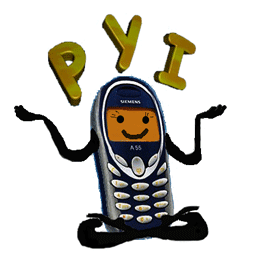
Sarntal/Südtirol - Sonntag, 19. September bis Freitag, 1. Oktober 2004
Kurs 2: CONTEXT - AWARENESS

Teampages and Playground:
Dozenten
Prof. B. Brügge, Ph.D. (Technische Universität München)
Prof. Dr. H. Niemann (Universität Erlangen-Nürnberg)
Coach
Patrick Renner (Technische Universität München)
Gastdozenten
Prof. Dr. Dr. h.c. K. Rothermel (Universität Stuttgart)
Prof. A. Smailagic, Ph.D. (Carnegie Mellon University)
Stefan Holtel, Vodafone-Pilotentwicklung
1 Introduction
This course is not based on the usual seminar style, but requires active participation in the development of a prototype during the academy. As a preparation for the course, you will not have to prepare a talk. Instead we will have to become knowledgeable in of the tools we will use to build the prototype (Image understanding, image manipulation, blue screening, augmented reality tracking, film editing, audio processing, DVD creation). We will use the following methods and techniques during this course :
- Brainstorming techniques
- Learn the application and solution domains in theory and practice
- Requirements elicitation with an application domain expert
- Object-oriented analyis and design, in particular scenario-based design
- Image understanding techniques
- Augmented reality techniques
- Presentation techniques
2 Motivation
After more than a decade of strong market growth, the mobile communication industry faces several major challenges: Revenues are declining, potential markets are almost penetrated with end user devices, sound new ideas for future mobile applications are still missing. One promising approach is to create context-aware services which will be capable to to support users better at by utilizing the context they are in. Context-aware applications will be much more than just setting up simple voice call or sending text messages. They hold several major challenges stretching from sensor technology to paradigms of interaction. To better understand these challenges we have selected a specific subject matter : a context-aware application for learning Indian Yoga - especially Hatha Yoga. Yoga is poised to become a major theme for the wellness market of the near- to mid-term future. A student learning Yoga, is attending a a weekly Yoga class and doing exercises at home between the classes. In the Yoga class, the qualified Yoga teacher is giving them advice - at home, nobody is helping them to do the exercises correctly. We propose to build a so-called "Personal Yoga Instructor (PYI)". The PYI is supposed to
- Give advice on planning and selecting appropriate daily and weekly Yoga exercises
- Give direct feedback on achievements through non-intrusive interaction
- Give advice on damaging postures with Yoga poses
In our opinion the PYI is a major example for a new class of applications emerging in the next decade - beyond mobile peer-to-peer voice and text message communication.
3 Goal
The goal of the course will be to
- Complete a full application specifications ranging from problem statement and stakeholders to business rules
- implement a PYI prototype of essential functionality described for the PYI
- develop a storyboard for promoting the implemented use case with a movie clip
- record a movie clip
- Create a promotional DVD

